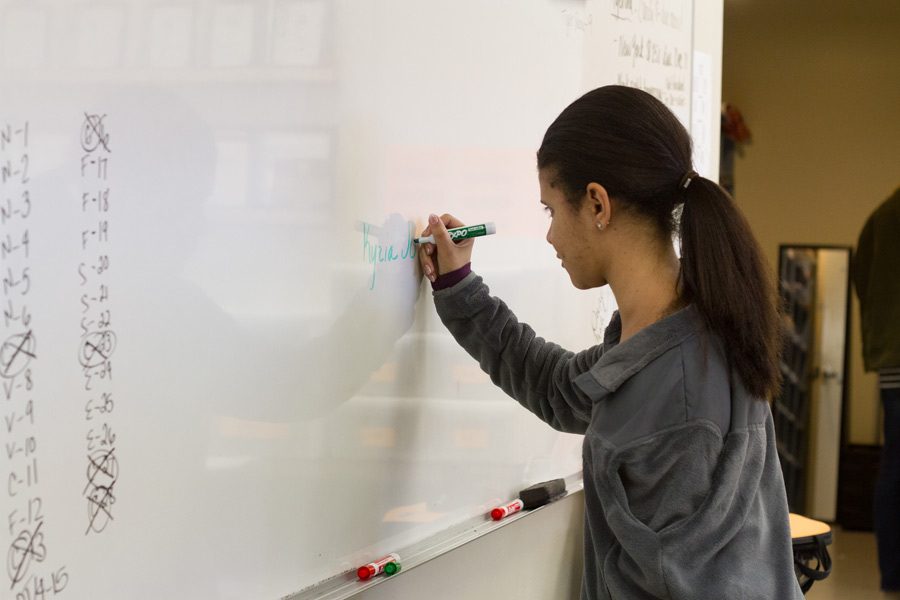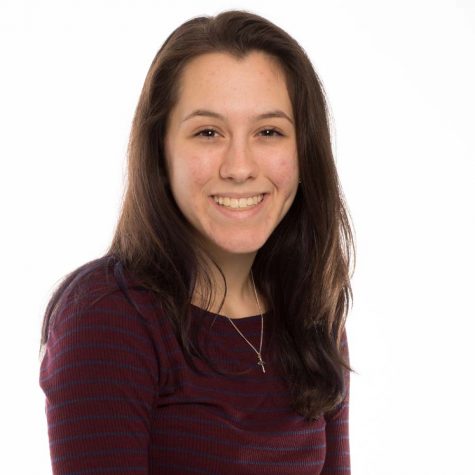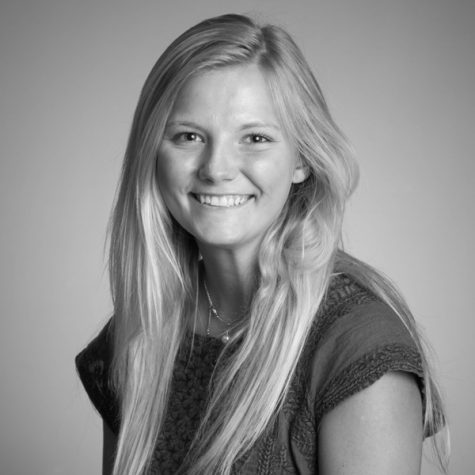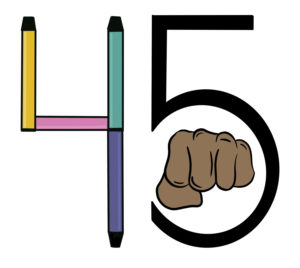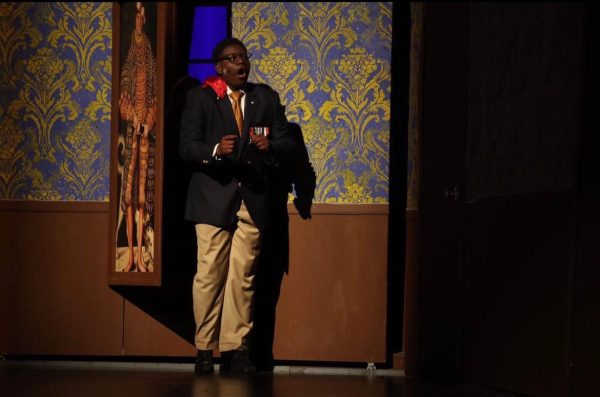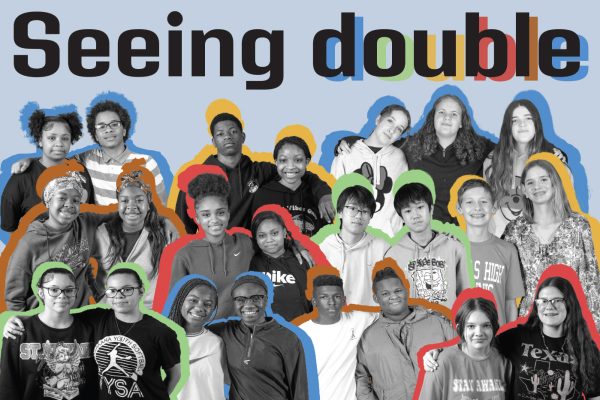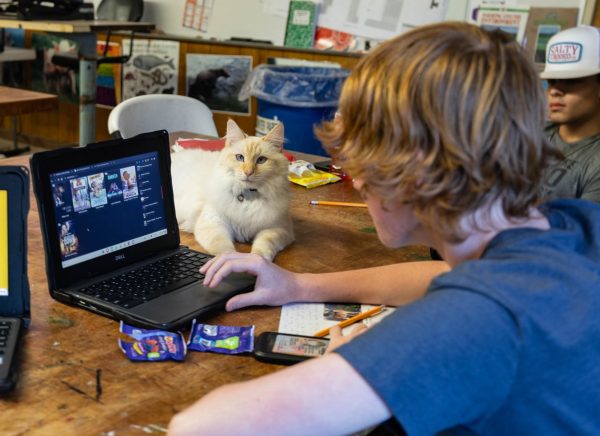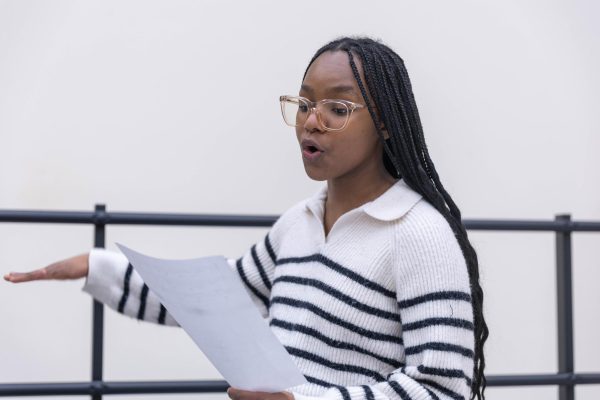Can’t slow her down
Sophomore lives life to the fullest despite missing arm
Sophomore Kyzia Johnson writes her name on the board during class. “I really don’t feel like the word disabled,” Johnson said. “I feel it’s not a very nice word to label someone or yourself.”
December 25, 2015
A simple decision. A complicated outcome. One internal struggle between pride and life. The knowledge that time is irreversible weighs ominously on the girl’s mind. Once a formative has been determined there is no turning back and the decisions made now will influence the very essence of her being. Seeing no possible way out of this horrendous nightmare, she nods her consent.
Sophomore Kyzia Johnson, views living life as an opportunity that must be utilized for the benefit of others. Having caught some of life’s fastest curve balls, she knows from experience how fleeting some moments can be and that appreciating the nondescript details is most significant.
“When I was 2 and a half I was diagnosed with cancer, in the bone, but I did chemotherapy and radiation for a year. We thought everything was okay and the tumor was gone. We were wrong,” Johnson said. “Eight years later I had this horrible pain in the back of my left arm and a large lump started to slowly appear and my parents knew instantly what it was.”
Johnson’s parents resumed treatments almost immediately after discovering the resurgence of the cancer.
“Shortly after I started chemotherapy again, my doctor told me not to be rough because if I broke my arm it wouldn’t be good,” Johnson said. “Then about the beginning of November later on that year, I slipped and fell, which broke the bone in my arm completely. I told my mom about a week later and she told my doctor. He told me that the break in my arm was bleeding and feeding tumors. If it got in my bloodstream it would have spread, and minutes after telling my family and I the news, he started to say the best option would be to amputate it.”
The choice proved difficult to resolve, and the fear of the unknown future pressed down on her shoulders.
“That was a tough decision to make, but it was the best and easiest,” Johnson said. “So not long after this decision, I was going into surgery to have my arm removed. After the surgery, I hated myself for making what I thought was a very stupid decision, but now that I’m older, it doesn’t bother me as much.”
Determined to prove that she is not inhibited in any means, she doesn’t think of her issue as a handicap, merely just a simple alteration in lifestyle.
“It’s just something you learn to live with,” Johnson said. “I think when people say they have a disability it’s because they feel sorry for themselves. I really don’t like the word disabled, I feel it’s not a very nice word to label someone or yourself.”
The drive to stay optimistic in Johnson’s life is the awareness that other children have been less fortunate than her.
“The motivation to stay positive would have to be the kids I met that died of their cancer,” Johnson said. “They aren’t alive anymore, but I’m lucky to still be here, that’s what motivates me.”
Even when she feels as if the world is against her, she still finds the courage to remain confident in herself.
“When someone would point out that I had no left arm, it made me feel terrible and like I wasn’t even a human being, just some deformed freak,” Johnson said. “It took a lot to overcome what I looked like. Eventually, I realized that there are thousands of other people like me.”
Undaunted, and persistent, Johnson is adamant when regarding that she has a purpose in life, and that nothing will prevent her from achieving it.
“I’m still here for a reason,” Johnson said. “I’m not going to let my missing limb slow me down.”


